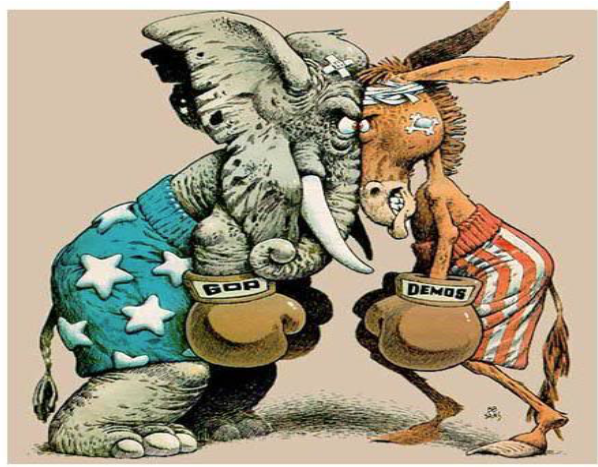CommentsVIEW FROM HERE--Have you ever stopped in the middle of the cereal aisle and stared blankly at the hundreds of brands to choose from?
If you felt a sense of irritation set in while looking over the seemingly endless array of options, then you know what psychologist Barry Schwartz is talking about in his book The Paradox of Choice: Why More Is Less.
Basically, Schwartz makes the case that having an abundance of options may be a byproduct of enhanced freedom, but it comes with a cost that is anything but liberating. The sheer volume of choices presented to us in any given day is enough to make a sane person question their own mental stability. Rather than basking in the ability to choose between options, modern humanity is, at least in the heavily industrialized parts of the world, bombarded by way too many choices; inevitably a sense of regret ensues. After all, someone chooses at the expense of not choosing many other possibilities. Schwartz writes, "Unlike other negative emotions-anger, sadness disappointment even grief-what is so difficult about regret is the feeling that the regrettable state of affairs could have been avoided and that it could have been avoided by you, if only you had chosen differently."
For example, not so long ago we had doctors who used their expertise to tell us what do do about a diagnosis. Now we have doctors who respect so-called patient autonomy and provide more than- one if not several options. The expert who knows something important has passed the burden onto the individual who knows nothing. Consequently, the same sense of dread and loathing that we feel when we stare at 50 hi-tech cell phones in a store (all about the same price but with slightly different applications) is the feeling we get when too many choices interfere with our base urge to make selections instinctually. "After millions of years of survival based on simple distinctions," Schwartz observes, "it may simply be that we are biologically unprepared for the number of choices we face in the modern world."
Too much choice paradoxically deprives us of freedom by paralyzing us into a state of inaction. In the economic sphere, when faced with too many choices, consumers have a tendency to shut down and not make a purchase at all.
Is this where Democrats are heading in 2020? With the preposterously overloaded field of Democratic candidates for president, are they bound to shut down voters rather than galvanize them to the polls?
I sure hope not, but Schwartz's methods of inquiry are sound and his vast research into the subject is more than convincing. It seems to me that the Democrats are in big trouble unless they can narrow this field quickly and decisively. Although there is much chatter about the value of diversity in the DNC, and that is why the field has men, women, gay, straight, young, old, African Americans, Asian Americans, Hispanics, governors, senators, a former vice president, entrepreneurs, and even self-help authors, if
Schwartz is right, then this massive display of diversity only confounds and stupifies voters. The orthodox dogma is that the way to maximize freedom is to maximize choice; but what if that dogma fails to match the reality of how people think and act? It surely contributes to a palpable sense of dis-ease in the party itself, one that manifests as a nullifying force throughout the electorate.
Are Republicans happier because they have fewer choices? I think Schwartz would probably say that they are. They are certainly acting with a more primitive part of the brain. Since humans have an innate desire to shed responsibility and have others make hard choices for them, or at the very least eliminate the number of options (think about the pleasure of doing multiple choice tests with only two answers as opposed to four), Republicans can savor the brute satisfaction of doing whatever Trump wants and says. It is a party of one. The pain and anxiety that comes with choosing have been taking away. And with that comes a whole series of ideas which are broken down from their complex formulations and turned into the most simple choices imaginable. Abortion is right or wrong. Gender is between male and female. America is good and the rest of the world is less good. God is all-powerful or not powerful at all. You are either saved or damned. Conservatives, Trumpers, and the Right, in general, believe in a world that is simple because it makes their life easier and happier.
So was Trump elected president in 2016 because he was the smartest person in the race? Hardly. He was the one who promised to make people happier by taking their freedoms away and it worked.
(George Cassidy Payne is an essayist, poet, social worker, and adjunct professor at SUNY Finger Lakes Community College in Upstate New York.)
-cw
















